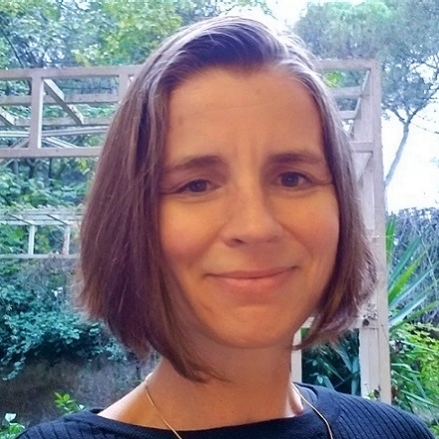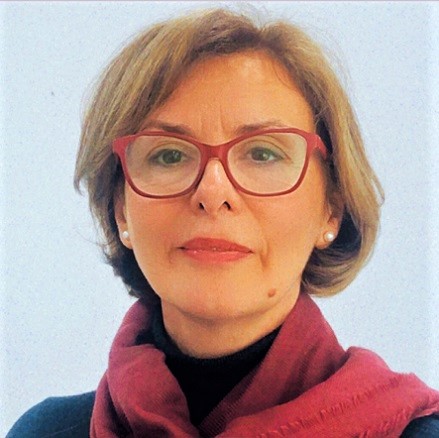Interview with Berengere Prince, Lead Natural Resources Management Specialist, and Drita Dade, Senior Natural Resource Management Specialist at the World Bank, on the potentials of the Blue Economy in Albania. Originally published on March 22 in Monitor magazine in Albania.
For centuries, mankind has exploited the seas and oceans as endless goods. But time has shown that a healthy balance must be set between exploitation and protection, and those countries that have reacted early have benefited. Albania is a country not yet benefiting from its potential of the Blue Economy. Although providing dynamic development and significant contributions to the economy, tourism is still underutilized, while the fisheries sector still has problems that need to be addressed. But how can our country maximize its benefits from the Blue Economy?
The World Bank has recently published the report "Realizing the potential of the Blue Economy in Albania. What do you mean by the Blue Economy concept?

Why is there attention on the Blue economy and what are the opportunities it presents for a country like Albania?

In this context, countries around the world are increasingly adopting the Blue Economy concept as a winning strategy.
In Albania, the Adriatic-Ionian coast is one of the country's most important zones because of its position, natural values, biodiversity, and cultural and historical heritage. It is already a vital part of the national economy, contributing hugely to the country's economic growth and employment. It still has the potential to contribute more, especially in fisheries and tourism. Both industries are well established and offer the highest potential return on investment within a Blue Economy. The recent World Bank report reflects Albania's specific circumstances and opportunities arising from the integrated economic development of maritime sectors - including the branding of a 'Blue Albania' vision that can serve as a blueprint for future innovations in these sectors.
Tourism is one of the sectors that has witnessed dynamic growth in recent years, but there are still shortcomings that you have noted in your report, such as the development of maritime and nautical tourism. What should be done to promote these areas and what are the expected benefits they can brings to the sector and the economy as a whole?
World Bank: Tourism is indeed a key driver of Albania’s growth and is expected to contribute even more to its economy in the future. In 2019, its direct and indirect contribution to tourism reached 21.2 percent of total GDP and was responsible for more than 254,000 jobs (WTTC 2020). The country is strategically located between countries with highly-developed marina locations - such as Croatia, Montenegro, Italy, and Greece. In addition, Albania has many cultural attractions, numerous archaeological sites, and great cuisine. Most importantly, Albania has huge potential to develop its docking capacity, offering lower prices to increase its share in the regional market. Today, Albania represents just 0.5% of the Adriatic’s total docking capacity, despite having similar nautical conditions to its neighbors.
The report lists several measures to promote maritime and nautical tourism related to the development of maritime or ‘blue’ clusters to connect tourism markets to yacht activity, fishermen, food producers, harbor managers, and local business associations through a commercial network and logistics platform. In addition, improvements are needed to address regulatory and enforcement limitations and create an enabling framework for private investments in nautical tourism. Also, critical infrastructure in this sector needs to be improved through public and private investment projects that are subject to robust economic and financial appraisal.
Expanding maritime and nautical tourism within a Blue Economy framework will generate new jobs and ensure environmentally sustainable, culturally acceptable, and economically viable growth. If developed strategically, it has the potential to improve links with agriculture (through the provisioning of food for the yachts and sailboats, and culinary tourism) and with inland tourism (as people often enjoy getting off their yachts and sailboats to experience activities on land). Branding Albania as a blue, environmentally-friendly tourism destination will also have spillover effects for the country’s exports, including seafood.
Albania has several concessional contracts for marina and yacht port projects - an area of tourism that is very underdeveloped in the country. What can be done to encourage this activity, at a time when yachts come to Albania only for very short visits or to benefit from cheap oil?
World Bank: The coastline between Vlora and Saranda offers at least five different types of economic opportunities that could be tapped by the industry. These activities include visits to archaeological sites, food tours and activities, diving, hiking, and educational awareness trips.
Fisheries are another sector that has been identified in your report as having high potential, but the report also talks about the problems of exploiting fish stocks and weak management in this sector. What is your view about the current situation of the fishery sector and what opportunities do you propose the country could leverages there?
World Bank: The Albanian fisheries sector is not operating at its full potential, due to the overexploitation of fish stock and the low productivity of its production assets. It is estimated that 80% of fish stocks are overexploited - in part due to illegal, unreported, and unregulated fishing, as well as fleet overcapacity. The management of the fisheries sector needs to be improved and strengthened, in-line with the priorities of the National Fisheries Strategy and EU accession plans in order to reverse negative stock trends and adopt more sustainable practices.
Albania can boost its fisheries and aquaculture sector by taking advantage of export opportunities in the context of growing global seafood demand and a well-established domestic processing industry. Aquaculture production can be increased by facilitating the delivery of licenses, the development of environmental and social standards, the boosting of research and development, and the stimulation of private investment. Increased national marine research capacity will also help advance reforms and growth in the fisheries sector.
Another good experience Albania can draw from is improving the marketing power of fishermen and women through an electronic auction platform, which has several advantages over the direct selling to a few customers: buyers and sellers are put in direct touch; it is faster, more efficient, and allows for full transparency and fair competition; it attracts more buyers, yielding better prices, and bringing fish to market faster; photos and details of a catch can be uploaded to the platform, and; buyers (e.g., wholesalers, restaurants) can directly place their orders.
The report presents some interesting proposals for marine clusters and fisheries that promote the concepts of "Eco," "Bio," and "Organic." How can these concepts be realized in terms of supporting policies and how can they be advantageous for Albania?
World Bank: Maritime clusters and eco-labelling for fisheries (‘Blue Albania’) are indeed two major recommendations in our recent report.
These maritime clusters could be developed by embarking on a program to kick-start sailing holiday packages in the south - building visitor confidence and gaining valuable, in-house experience in operational requirements. Also, proper marketing can help promote Albania’s unique sailing environment - linking it to natural and cultural assets. It is also important to build marine and nautical tourism, linking these to inland tourism and ensuring proper infrastructure is in place to accommodate further growth. Appropriate awareness and targeted advertising campaigns can help facilitate food tours and other cultural activities, such as visits to museums, trips to archaeological sites, and hiking nature trails along the southern route.
Developing a ‘Blue Albania’ eco-labelling scheme for fisheries and aquaculture would allow the country to brand its seafood production, better compete with neighboring countries, target market niches that benefit from a price premium, and expand its market share. The demand for organic and socially fair products is a growing trend among Western consumers. In Albania, environmental labelling has also become more common - both in the national development strategy and in the private sector’s marketing schemes.
Marine pollution and plastics are two issues addressed in the report. How can these be addressed in order to minimize the use of plastics or improve waste management through an improved legal framework, incentive schemes for recycling, or discouraging the use of plastics?
World Bank: Marine and plastics pollution are indeed a big issue in Albania and a major risk to the environment, the health of the population, and the country's Blue Economy strategy. Albania’s ambition is to address the challenges of pollution in coastal areas. A clean and healthy marine environment will remain a lifeline for Albania’s marine-based sectors. Marine litter can be prevented through improved and increased recycling and avoidance of single-use products. Other helpful steps are the use of alternatives to plastic and eco-design (for example, plastic products designed to prevent littering or avoiding intentional use of microplastics in products) and through intensive education and awareness actions and campaigns.
The challenges of marine plastic litter in Albania cannot be resolved by one policy or single measure alone. It will take well-coordinated and sequenced actions to curb the challenges of plastic. A system-wide approach should help divert plastic waste from landfills and recognize the economic value of reusing this material. While it is important to acknowledge flaws in the waste management system, the more critical issue is to prevent the generation of plastic waste by investing in upstream solutions. Our report offers a detailed list of policy measures and actions to protect the marine environment from plastic pollution in a coastal country such as Albania.
